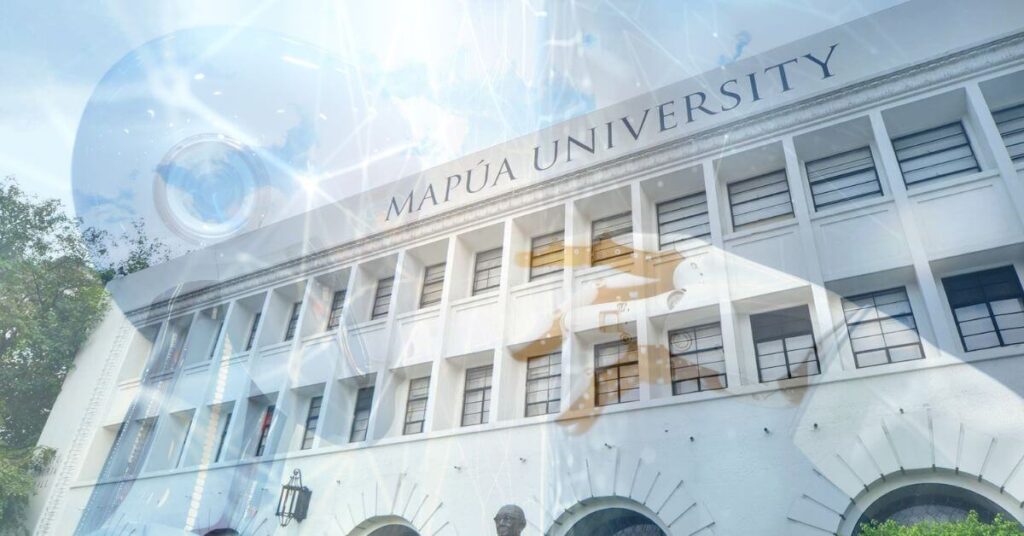Mapúa University Launches First AI Engineering Degree in the Philippines

Mapúa University Launches First AI Engineering Degree, one of the country’s oldest and most respected engineering schools, officially introduced the Bachelor of Science in Artificial Intelligence Engineering — the first of its kind in the Philippines.
Inside the packed auditorium, the audience leaned forward as Dr. Reynaldo Vea, Mapúa’s president, spoke with quiet confidence. “This is not just an academic program,” he said. “It’s an investment in the nation’s ability to participate — and lead — in the AI-driven world.”
A First for the Country
Artificial intelligence has long been a background player in most Filipinos’ daily lives. Navigation apps that reroute us when EDSA traffic slows to a crawl, online stores suggesting products before we even click search, even the face filters that pop up in our favorite social media apps — all of them use AI in some form.
But the challenge has always been the same: we consume AI technology built elsewhere.
“For years, we’ve been importing tools and talent,” explained Engr. Marissa Santos, one of the program’s lead faculty members. “Now, we want to train homegrown engineers who can build, innovate, and shape these systems with Filipino perspectives in mind.”
The curriculum covers the building blocks of AI: machine learning, computer vision, robotics, and natural language processing. But it’s not just about code. Ethics, human-centered design, and cross-disciplinary thinking will play an equally important role.
“This is not just about making faster algorithms,” Santos said. “It’s about creating technology that understands our culture, our language, and our communities.”
Why It Matters Now
Global demand for AI professionals is exploding. A 2024 World Economic Forum report ranked AI-related roles among the fastest-growing in the next decade. In Southeast Asia, experts warn that without local AI expertise, countries risk falling behind — becoming consumers instead of creators.
Mapúa’s move could help turn the tide.
“If we’re serious about competing in the digital economy, we can’t just wait for innovation to arrive from overseas,” Santos said. “We need to create it here.”
The urgency is clear. AI is driving transformation across industries — from diagnostics in hospitals and fraud detection in banks, to precision agriculture and personalized learning systems in schools. For a country like the Philippines, where access to skilled professionals is often uneven across regions, AI could bridge gaps in education, healthcare, and disaster response.
Built for Real-World Impact
Unlike traditional computer science programs that might sprinkle in AI as an elective, this new degree treats AI as the main course.
Students will work in modern computing labs, tackle hands-on projects from the first year, and collaborate with industry partners. Fourth-year students are expected to work on a capstone project that solves a real-world problem — whether it’s improving crop yields through smart sensors, streamlining hospital diagnostics, or making transport systems more efficient.
Mapúa’s partnership with Arizona State University also means students will have access to global resources and opportunities for cross-border collaboration. “We want them to think globally but design locally,” said Dr. Vea.
Opportunities Beyond Graduation
For graduates, the career paths are varied: AI engineer, machine learning specialist, data scientist, robotics developer, or AI ethics consultant. Tech companies in the Philippines are already expressing interest in partnering with the program to recruit future talent.
“Local companies are realizing they don’t have to outsource AI development,” said John Mercado, CEO of a Makati-based startup that builds automation tools for small businesses. “If programs like this succeed, we’ll have local experts who understand both the tech and the market.”
AI with a Filipino Accent
One of the most promising aspects of the program is its focus on local applications. While global AI models are powerful, they often fall short in understanding Filipino languages, cultural nuances, and local industry needs.
Imagine AI-powered disaster prediction tools trained specifically on Philippine weather patterns, or medical diagnostic systems optimized for common local health conditions. Picture natural language processing models that understand not only Tagalog but also Cebuano, Ilocano, and other regional languages — making digital services more inclusive.
“These are the projects we want our students to dream about,” Santos said. “AI that speaks our language, literally and figuratively.”
Student Excitement and Early Reactions
As the launch wrapped up, a group of senior high school students lingered at the back, chatting about the possibilities. One of them, 17-year-old Paulo from Quezon City, said he was thinking of enrolling in the program.
“I like robotics, but I never thought I could work on AI here in the Philippines,” he said, grinning. “Maybe I don’t have to go abroad after all.”
For his friend Angela, the appeal is more personal. “My family is from Bicol, and typhoons hit us hard almost every year. I want to work on AI tools that can help predict and prepare for disasters better,” she said.
Looking Ahead
The first batch of AI engineering students will start classes this August. Slots are expected to fill quickly, with interest already strong from both students and tech companies.
For Mapúa, it’s about more than just being first. It’s about making sure the Philippines has a seat at the table when the rules of the AI era are written.
“Artificial intelligence will define the next chapter of global progress,” Dr. Vea said in his closing remarks. “Filipinos should not just read about it — we should write part of it.”